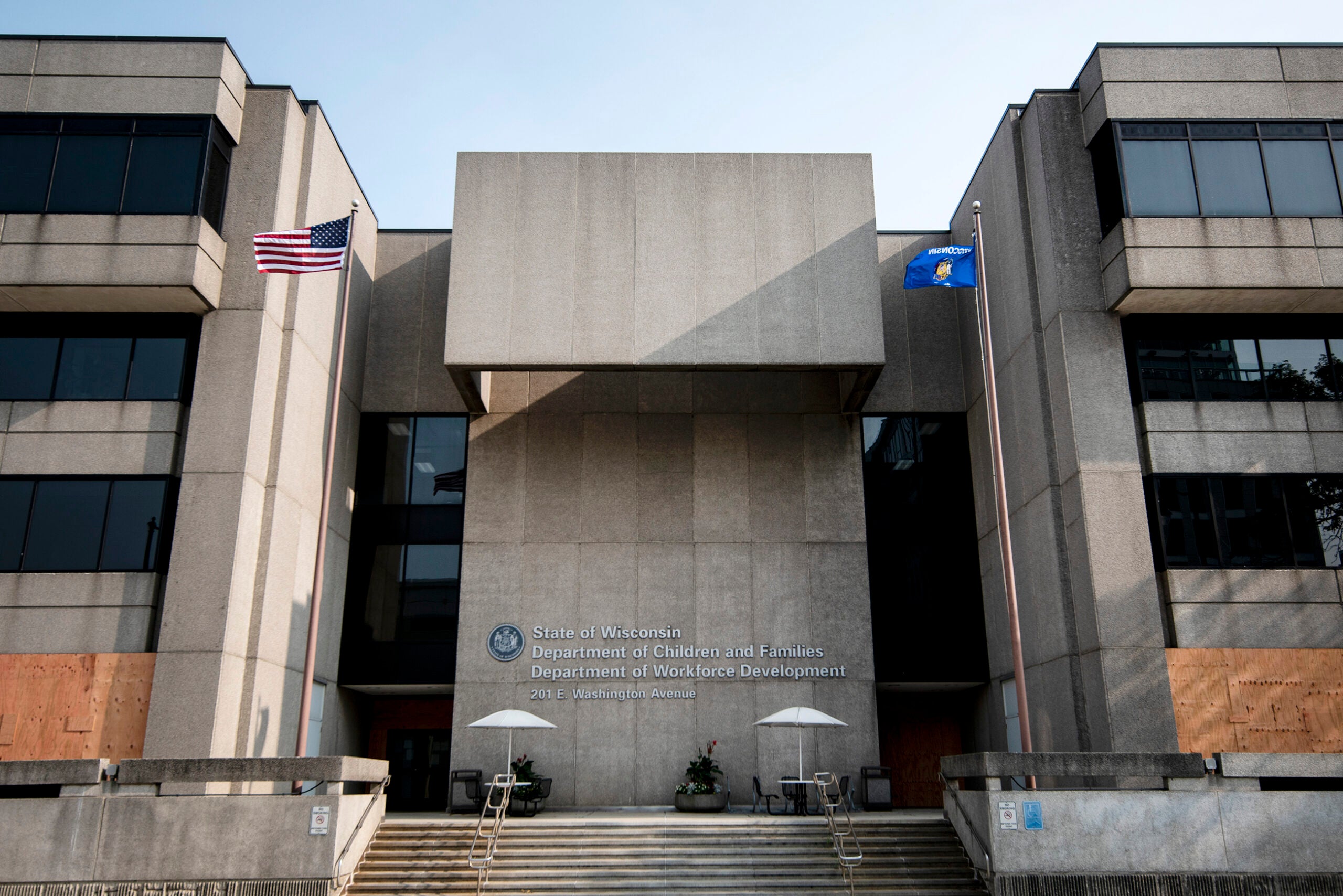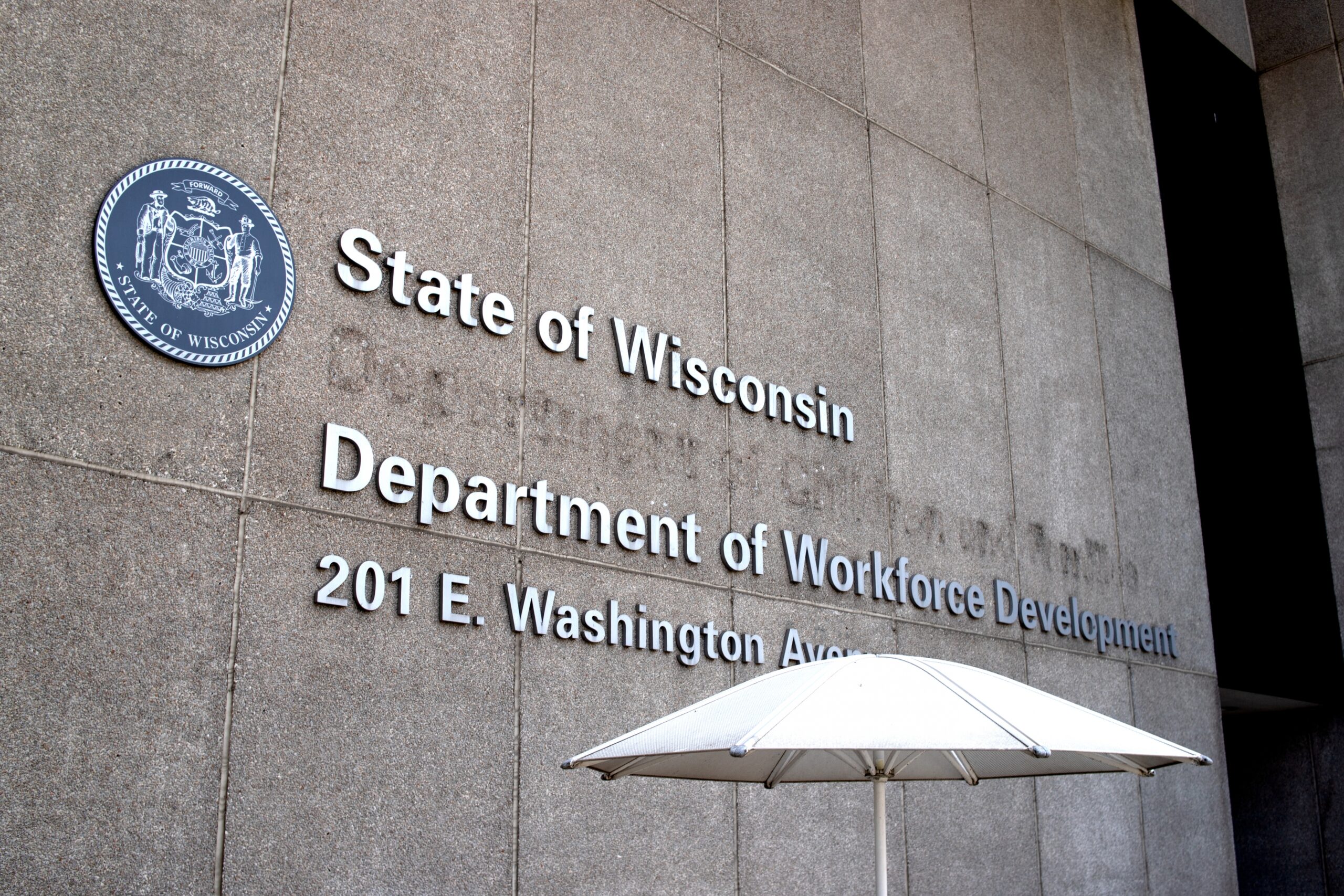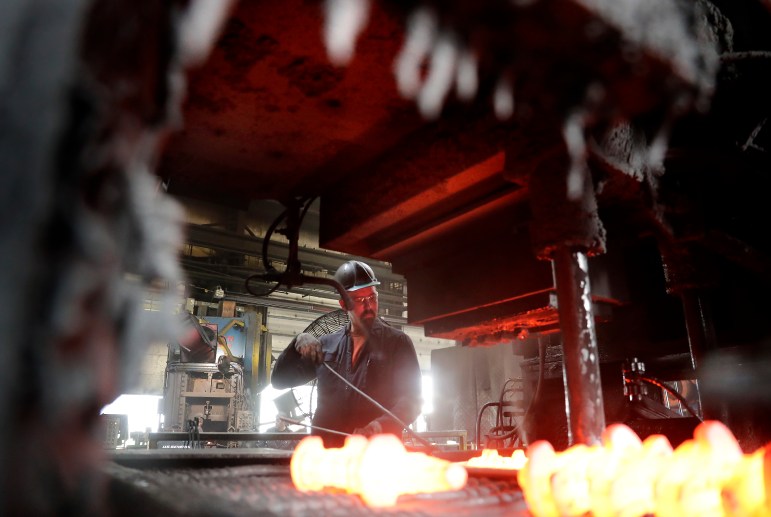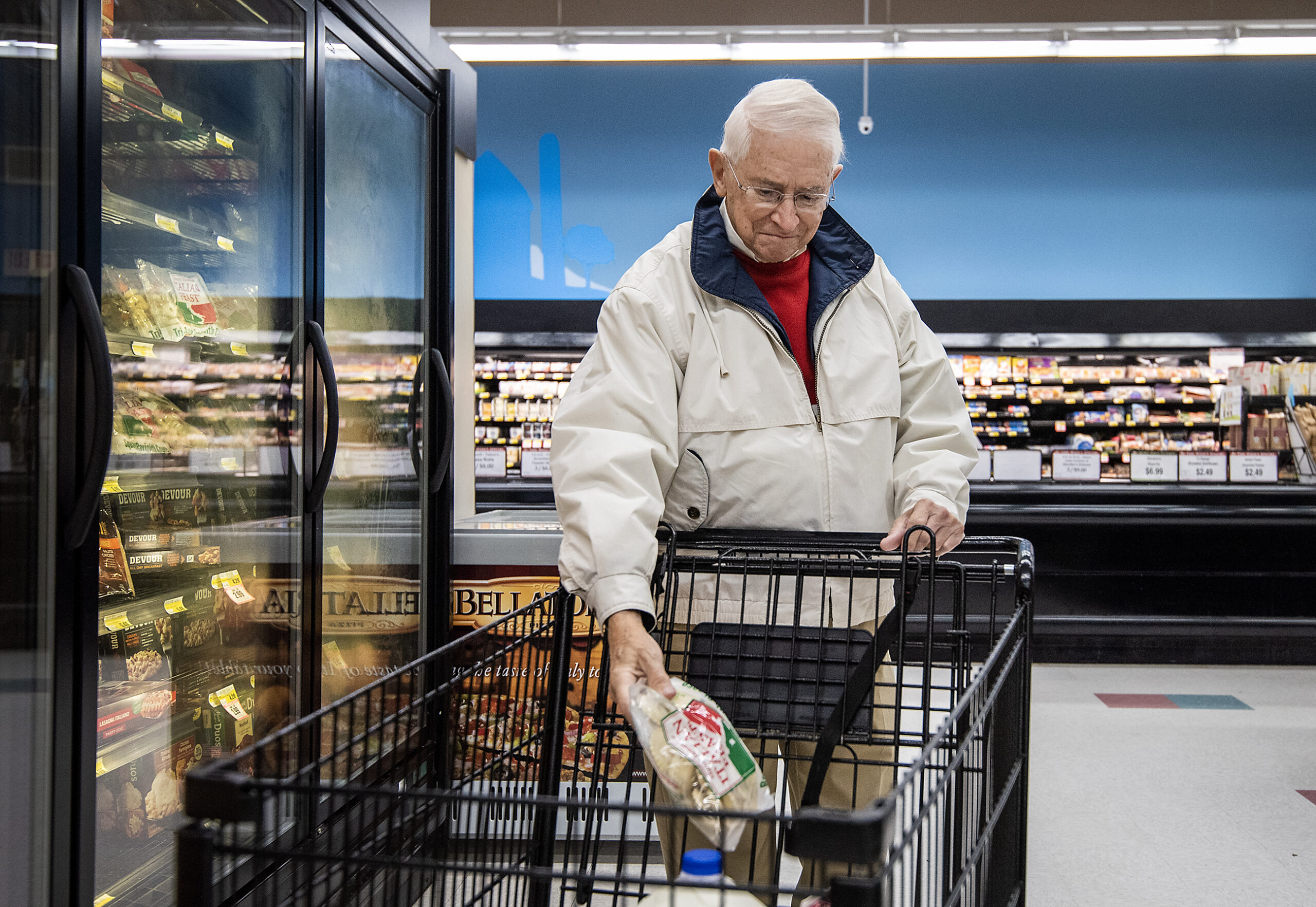Unemployment recipients say they are extremely skeptical of the state Department of Workforce Development’s latest goal to clear the backlog of unemployment claims by the end of December.
Amy Pechacek, the transition director of DWD, laid out the new timeline in an interview with the Milwaukee Journal Sentinel Tuesday. A timeline that has been sped up, Pechacek said, because of a partnership between DWD and Google, which has analyzed years of Wisconsin’s unemployment claims to look for ways to make the process more efficient.
“Do I trust that they’ll be able to do it? No,” said Chenon Times-Rainwater, co-founder of the unemployment advocacy group Wisconsin Unemployment Action Group, of DWD’s end-of-year goal.
News with a little more humanity
WPR’s “Wisconsin Today” newsletter keeps you connected to the state you love without feeling overwhelmed. No paywall. No agenda. No corporate filter.
Times-Rainwater said she wants to hear specifics about what will be done differently to speed up the backlog processing.
“There are people that filed claims in March that still have heard nothing,” Times-Rainwater said. “What is (Pechacek) going to say that’s going to make those people believe that their claims are going to be cleared?”
Robert Orozco is a Milwaukee resident who said he filed for unemployment in late May after a contract job as a data analytics engineer he was about to start was canceled. Orozco said he found another job about two months later, but in all it took nearly five months with the help of state Sen. Tim Carpenter, D-Milwaukee, to get his unemployment claims paid.
“It was a struggle and I had basically ended up using most of my credit cards, most of my available cash, just to address it,” Orozco said.
As of Nov. 21, more than 70,000 out-of-work Wisconsinites were waiting for their claims to be processed, according to DWD. The department said despite tens of thousands who continue to wait, they’ve processed nearly 94 percent of the more than 8.2 million weekly unemployment claims filed since the start of the pandemic in mid-March.
Rebecca O’Connor, a Hudson resident, said she applied for Pandemic Unemployment Assistance, a program for those typically not eligible for unemployment, in late April. O’Connor said she runs her own residential cleaning company, and was out of work for about three months between March and June. After hearing nothing from DWD for nearly four months, her claim was denied in August, and she’s been waiting for the appeals process to play out ever since.
When asked about DWD’s new goal to clear the backlog by the end of December, O’Connor said, “I do not believe that at all, I have no faith in it.”
Gov. Tony Evers ousted former DWD Secretary Caleb Frostman from his position in September because of the backlog in unpaid unemployment claims.
“People across our state are struggling to make ends meet, and it is unacceptable that Wisconsinites continue to wait for the support they need during these challenging times,” Evers said in a statement announcing Frostman’s firing in September. “We have continued to add additional state resources to support the DWD, but it is clear that we must have change if we are going to address these problems to get folks their benefits faster.”
The department received a huge influx of weekly unemployment claims immediately following Evers’ now-defunct “Safer at Home” order in mid-March. DWD has blamed the backlog on staffing shortages and an old computer system that only allows the department to set up one new unemployment program at a time.
Reasoning aside, the large number of Wisconsinites who waited months for their unemployment aid to come — tens of thousands of whom are still waiting — were pushed into increasingly desperate financial positions. Many missed rent payments and other bills, racked up credit card debt and resorted to selling things to get by, according to multiple interviews with WPR. Some reportedly had thoughts of suicide.
Times-Rainwater stressed the importance of remembering those real-world impacts on Wisconsinites as the department continues its work to clear the backlog.
“When you talk about meeting that goal, put a name to each one of those claims, put a face to each one of those claims,” Times-Rainwater said. “Because it’s not just claims. It’s a person, it’s a family, it’s a meal, it’s a home, it’s a vehicle.”
Wisconsin Public Radio, © Copyright 2025, Board of Regents of the University of Wisconsin System and Wisconsin Educational Communications Board.






